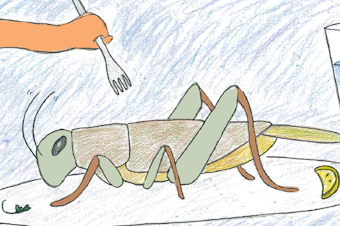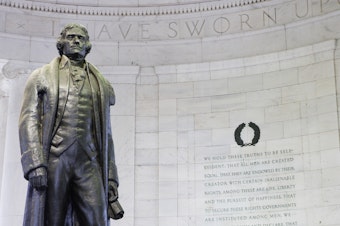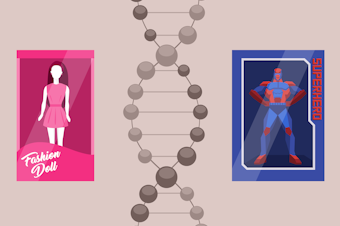Shankar Vedantam
Podcasts
Stories
-

Radio Replay: Yum and Yuck
Paul Rozin has been studying the psychology and culture of food for more than 40 years. And he's come to appreciate that food fills many of our needs, but hunger is just one. On this week's Radio Replay, we chew over the profound role that food plays in our lives. Then, we spit it all out — we study the ick factor that turns us off to cockroaches, skunks, and poop. Rachel Herz explains the sensation of disgust, and why it doesn't always come naturally. For more information about the research in this episode, visit https://n.pr/2UTf1p0.
-

Alan Alda Wants Us To Have Better Conversations
Arguments and bickering can sour family gatherings during the holiday season. This week, we share tips on how to avoid miscommunication from our January 2018 conversation with actor Alan Alda. You might know him from his roles on television shows like M*A*S*H, The West Wing and 30 Rock, but in recent years Alda has also focused on helping scientists, and the rest of us, communicate better. His book is If I Understood You, Would I Have This Look on My Face? My Adventures in the Art and Science of Relating and Communicating.
-

Yum and Yuck: The Psychology Of What We Eat...And What We Spit Out
This week on the Hidden Brain radio show, we dig into the culture and psychology that determines the foods that make us salivate and the scents that make us squirm.
-

Starving The Watchdog: Who Foots The Bill When Newspapers Disappear?
When a newspaper shuts down, there are obvious costs to the community it serves: job losses, fewer local stories. But new research suggests there's another consequence that's harder to spot—one that comes with a hefty price tag for residents. This week on Hidden Brain we ask, who bears the cost when nobody wants to pay? For more information about the research in this episode, visit https://n.pr/2zSPraS.
-

Spoiler Alert! The Psychology Of Surprise Endings
Why do we always fall for surprise endings? It turns out that our capacity to be easily fooled in books and movies is made possible by a handful of predictable mental shortcuts. We talk this week with Vera Tobin, one of the world's first cognitive scientists to study plot twists. She says storytellers have been exploiting narrative twists and turns for millennia — and that studying these sleights of hand can give us a better understanding of the contours of the mind.
-

A Founding Contradiction: Thomas Jefferson's Stance On Slavery
"We hold these truths to be self-evident, that all men are created equal." These words, penned by Thomas Jefferson more than 240 years ago, continue to inspire many Americans. And yet they were written by a man who owned hundreds of slaves, and fathered six children by an enslaved woman. This week, we talk with Pulitzer Prize-winning historian Annette Gordon-Reed about the contradictions in Jefferson's life — and how those contradictions might resonate in our own lives.
-

Radio Replay: Bringing Up Baby
This week we focus on the behavior of the youngest members of the human race. We try to translate the mysterious language of babies. And we ask, when should we step back and just let our children be? For more information about the research in this episode, visit https://n.pr/2TuxEz3.
-

Nature, Nurture, And Our Evolving Debates About Gender
Gender is one of the first things we notice about the people around us. But where do our ideas about gender come from? Can gender differences be explained by genes and chromosomes, or are they the result of upbringing, culture and the environment? In this encore episode from October 2017, we delve into debates over nature vs. nurture, and meet the first person in the United States to officially reject the labels of both male and female, and be recognized as "non-binary."
-
How Can Schools Better Persuade Students To Show Up For Class?
Many schools give attendance awards to motivate students. A study found students who were awarded for perfect attendance went on to have more absences than their peers who weren't given the award.
-

Zipcode Destiny: The Persistent Power Of Place And Education
There's a core belief embedded in the story of the United States: the American Dream. The possibility of climbing the economic ladder is central to that dream. This week we speak with Raj Chetty, one of the most influential economists alive today, about the state of economic mobility in the U.S. and whether the notion of the American Dream is still useful. For more information about the research in this episode, visit https://n.pr/2z8cvSs.
